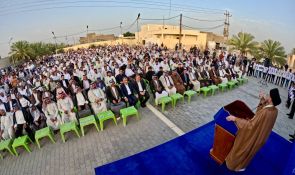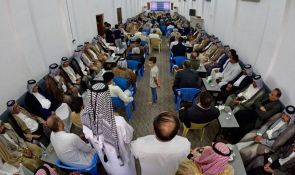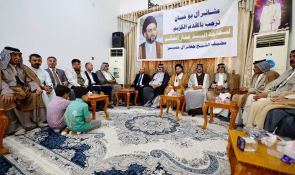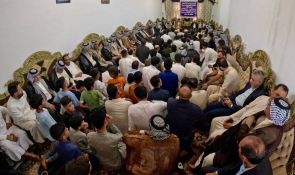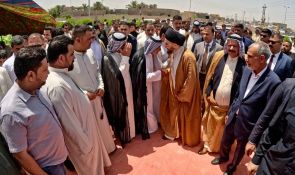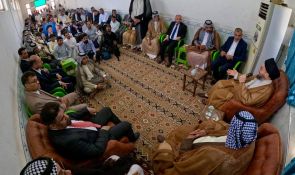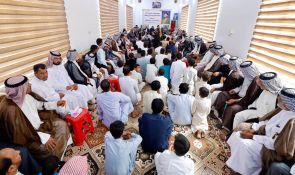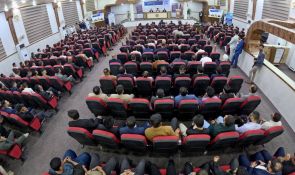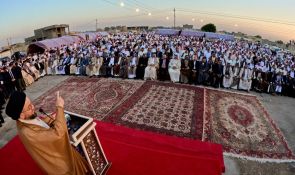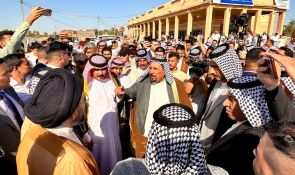Sayyid Al-Hakeem: Iraq overcome challenging social, political, and security issues
During His Eminence’s visit to Babylon, the cradle of civilization and history, at the residence of Sheikh Adnan Abdul Mun'im Rasheed Al-Janabi on 2/5/2024, Sayyid Ammar Al-Hakeem, Head of Al-Hikma National Movement, highlighted the changes in the Iraqi situation, including Iraq's overcoming of many challenges, such as social challenges. H.E. emphasized that sectarianism in Iraq is not social but political, and the nature of social fabric and its diversity ensures societal preservation, as the sectarian diversity within the same tribe illustrates. H.E. clarified that Iraq has overcome these challenges in a short period and has also overcome security challenges.
Politically, H.E. affirmed that Iraq has moved past stages of political differences and political stalemates, where the inability to find solutions led to frustration and pessimism about the future. H.E. illustrated that political differences still exist, but what differs now is the ability to manage these differences and the presence of frameworks for such disagreements.
H.E. stressed the importance of maintaining balance to preserve stability, noting that the results of the elections should reflect this equation. H.E. commended everyone's efforts to contain the crisis of the 2021 election results, where resorting to peaceful means of expressing opinions and seeking solutions prevailed.
H.E. also highlighted that Iraq is viewed differently by others compared to how Iraqis perceive themselves, emphasizing that regional countries are eager to participate in the reconstruction and investment opportunities offered by Iraq. H.E. underscored the importance of aligning interests with regional and global powers, noting a shift in the regional perception of Iraq's situation, where the region's security is now linked to Iraq's stability.
H.E. also called attention to the visit of Al-Sudani’s leader to the United States and the ensuing interaction and interest in the Iraqi situation, along with European and regional concerns. H.E. clarified Iraq's clear stance in supporting the Palestinian cause at all levels—religious, governmental, and popular—which is a point of consensus in Iraq. H.E. explained that the Israeli entity, before Al-Aqsa intifada, was not perceived the same as afterward, as the philosophy of the entity, which portrayed itself as a victim for over seven decades, collapsed. H.E. recalled the position of the students of American University as their perception and support for the crises in Palestine, as well as the priceless souls of innocents to Allah and the impact they have. H.E. expressed regret at the world's silence and cover-up of Israeli crimes, as some countries stood against the establishment of the Palestinian state and its full membership in the United Nations.


